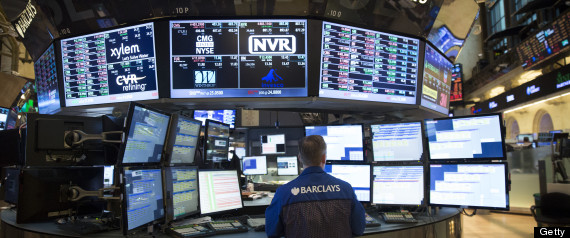Saturday, September 21, 2013
Could FedEx Freight Be Next ?
Thursday, September 12, 2013
New AFL-CIO VP Tefere Gebre : Workers Realizing Their Own Power Can Revitalize Labor In The South
Posted: September 10, 2013 by laborradio
By Doug Cunningham
As labor activists and union leaders meeting in Los Angeles look for tactics and strategies that will succeed in revitalizing the labor movement, an inspiring example has come from an unlikely location – Orange County, California. For decades it has been a Republican dominated conservative area and yet Tefere Gebre has managed to lead a robust local labor movement in that county. The Ethiopian immigrant is about to become the new Vice-President of the AFL-CIO. He says labor can win for workers even in places like Orange county and in southern states, which have long been hostile to unions.
[Tefere Gebre]: “If we can do it in Orange County there is no reason why we cannot do it in Mississippi, why we cannot do it in Alabama, why we cannot do it in Texas.”
Cebre says working people can only improve their lives through organized power, worker power not dependent on laws or on politicians or on politics.
[Tefere Cebre 2]: “It is bringing people together and saying ‘we have to realize our own power’. We can’t count on politicians or pollsters or consultants to deliver that power for us. That’s what we have done in Orange County and that’s what we’re gonna do in Texas, Arizona, Alabama, South Carolina. I am excited about re-affiliating and re-bringing the south into the labor movement and not writing it off.”
TEAMSTER PROPOSAL FOR FEDEX INDEPENDENT BOARD CHAIR BACKED BY LEADING PROXY ADVISERS
September 12, 2013
Sustained Underperformance, Executive Pay and Governance Concerns Lead To Support For Independent Board Leadership
PRESS CONTACT
David White
dwhite@teamster.org
202-624-8730
(WASHINGTON) -- The country’s two largest proxy advisers, ISS and Glass Lewis, have both recommended that FedEx [NYSE: FDX] shareholders support a Teamster proposal calling for an independent chairman of the board at the company’s annual meeting Sept. 23. Fred Smith, the company’s founder, has served as both chairman and CEO of FedEx and its predecessor entities for more than 35 years.
In its recommendation to shareholders, ISS cites the company’s lackluster performance and continued practice of providing senior executives with tax gross-ups to cover the taxes an executive would incur on restricted stock awards and permitting certain pledging of company shares. Since 2009, Chairman Smith has pledged at least 22 percent of his shares in the company. ISS notes that FedEx has underperformed its global industry peers as well as the S&P 500 in total shareholder return in the 1-, 3- and 5-year periods.
Over the past two years, Smith has received nearly 375,000 shares in the form of stock options valued at more than $14.6 million while the company’s stock lagged behind its peers.
“The FedEx board continues to lavish Fred Smith with stock options worth millions despite the company’s long-term underperformance of its peers,” said Ken Hall, General Secretary-Treasurer of the International Brotherhood of Teamsters. “Shareholders deserve an independent chairman of the board with a vision for the future.”
The Corporate Library, a leader in corporate governance analysis, notes that while it is common for founders who have majority control of a company to serve as both chairman and CEO, Smith owns just 6.7 percent. “Certainly a management structure best representing the holders of the other 93 percent of shares would be more sensible.”
In 2012, FedEx created an independent lead director position to address mounting investor support for an independent chairman of the board. In 2011, the Teamster proposal received 36.32 percent support, or 42 percent with shares held by Fred Smith and his family excluded. Long-tenured director Shirley Ann Jackson was appointed to the position. Jackson was a controversial appointment as an effective “independent” leader as she had served under Smith on the FedEx board for 13 years and was overcommitted with other board obligations. At the time of her appointment, she served on four other corporate boards, 13 board committees and six non-profit boards in addition to her full-time job as a university president.
Jackson will be replaced as lead independent director this year by Waste Management CEO David Steiner. But ISS notes in its recommendation that at FedEx, the independent lead director position does not provide the “necessary counterbalance to a combined CEO/chairman.”
Thursday, September 5, 2013
FedEx Wins Defense Contract
Apart from FedEx, the Department of Defense also issued two other contracts worth $171 million each to United Parcel Service, Inc. (UPS) and Polar Air Cargo, subsidiary of Atlas Air Worldwide (AAWW) for providing transportation services. Both these contracts also expire on Sep 30, 2014.
Apart from gaining new military contract, FedEx also extended its multi-year contract with United States Postal Service (USPS) in Apr 2013. Effective Oct 2013, this seven-year contract worth $10.5 billion would require FedEx Express to provide airport-to-airport transportation for USPS Express Mail and Priority Mail services within the U.S.
FedEx also aims to spread its services across the U.S., Canada and Mexico and capitalize on potential business opportunities in NAFTA (North American Free Trade agreement) markets. The company is boosting its international presence with its acquisitions of Opek Sp. z o.o. (Polish courier company), TATEX (French B2B Express transportation company) and Rapidão Cometa (Brazilian logistics company).
We believe that new contracts wins along with investments in organic growth as well as acquisitions will lead to greater operational efficiency, significant long-term synergies and competitive advantage.
FedEx, which operates with companies such as Radiant Logistics, Inc. (RLGT), has a Zacks Rank #3 (Hold).
